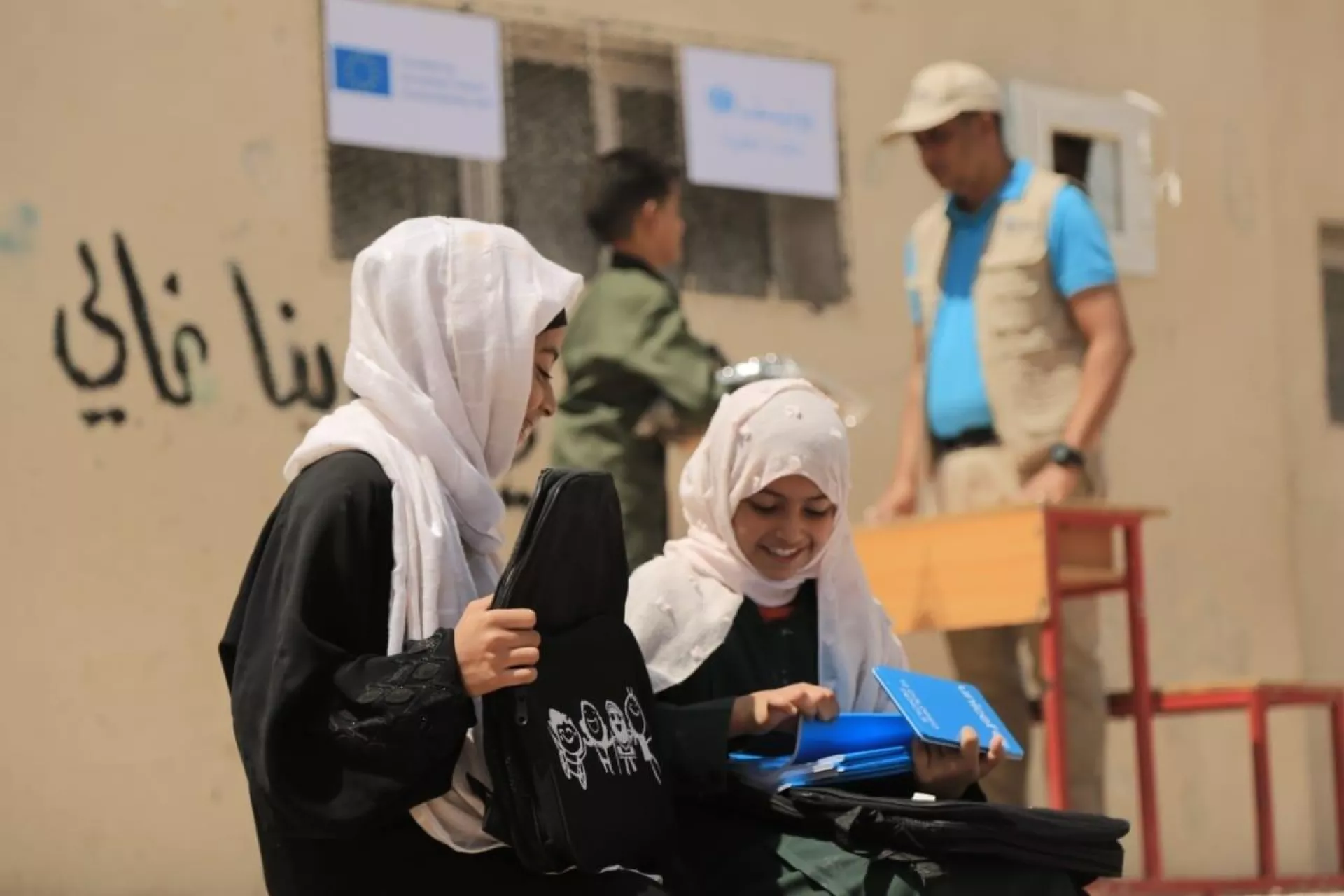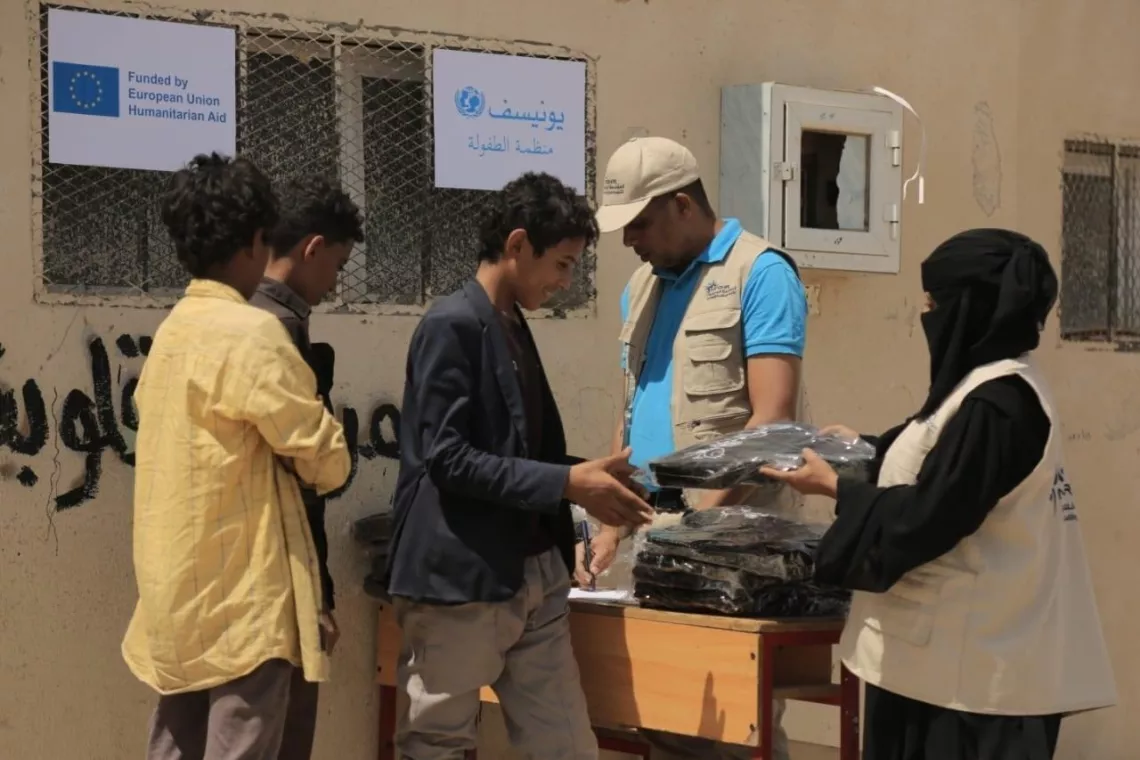Students go Back to School in Al-Jufaina IDP Camp in Marib
Over 2.4 million children are out of school in Yemen, including almost a million who dropped out since the conflict escalated in March 2015

- Available in:
- English
- العربية
Going back to school is an exciting time for children, as they look forward to seeing their friends and continuing their education. As the new school year kicks off in Yemen, many families struggle to send their children to school because of a lack of schools and economic constraints that do not allow them to buy school supplies. The situation is even more dire at camps for Internally Displaced Persons (IDP) where children suffer amid difficult living conditions that push them out of school. In Marib, where the IDP population is large (20 per cent of the total IDP population in the country), and as part of its interventions to support the education sector, UNICEF has mobilized resources to provide non formal education in Al-Wahdah School in Al-Jufainah IDP Camp. As part of the programme, children receive school materials and supplies. This will help families to reduce the cost of going to school, will help prevent school dropout and attract out-of-school children back to school.
Back to school enthusiasm
At the age of 12, Samar was supposed to be in the fifth grade; but due to displacement and harsh living conditions, she skipped one school year. “I dropped out of school last year, but now I am back. I am currently in the fourth grade, and I go to school every day to study and learn,” she says.
Samar has received a school bag kit from UNICEF, containing school supplies such as pens, notebooks, coloring pencils and other materials which will help her, and other displaced students like her, continue their education in the hope of a brighter future.

“I could not go to school last year because I was living in Taizz,” Basma, an 11-year-old student recalls. “This year, however, I am studying at Al-Wahdah School,” she says cheerfully, expressing her delight at going back to school and receiving a school bag kit. “These supplies are important because they will help me study,” she explains. Basma often arrives late for the first class due to lack of transportation. She resorts to walking long distances under the burning sun, but she sees returning to school as an invaluable opportunity, which fuels her determination to keep moving forward. “I was happy to receive copybooks, coloring pencils, a backpack, and pens. I love coming to school so much,” says Omar Abdul-aziz, a student in the second grade at Al-wahda School, Marib.
Supporting Schools with Supplies
“Several schools were supported with school bag kits, games and recreational kits, and facilitators were paid to conduct life skills activities and provide psychological support to students. All these interventions aim to support children's right to education,” says Muhammad Noaman Al-Salfi, an In-field Coordinator of Child Protection in Marib. “This project targets students who have been out of school for one year. We provide school supporting those out-of-school children with supplies which will motivate students to attend non-formal education programme regularly,” he adds. “We faced many challenges, but the biggest one was convincing students to return to school. Thank God, our teams managed to convince them to catch-up classes. Finally, they passed the exams and now continue to formal education” he emphasizes.

An important step
“The school bag kits distribution is an important step; it supports drop-out students in the light of the deterioration in living and economic conditions,” says Hamoud Mohammed, the vice principal of Al-Wahdah School in Marib.

“This UNICEF-supported intervention has succeeded in bringing many students back to school,” he adds. “The main challenges both the school and its students face are the lack of specialized teachers and books for students, but we spare no efforts to mitigate their impact,” he concludes.
UNICEF with support from the European Union’s humanitarian arm (ECHO), continues to work tirelessly to help Yemen’s children survive the conflict and recover from its crippling effects to continue growing, learning and playing. According to UNICEF, 6,128 children (3,423 male, 2,705 female) received individual learning materials as part of the non-formal education component of the project, which aims to reach 50,00 out-of-school children across Yemen.




